

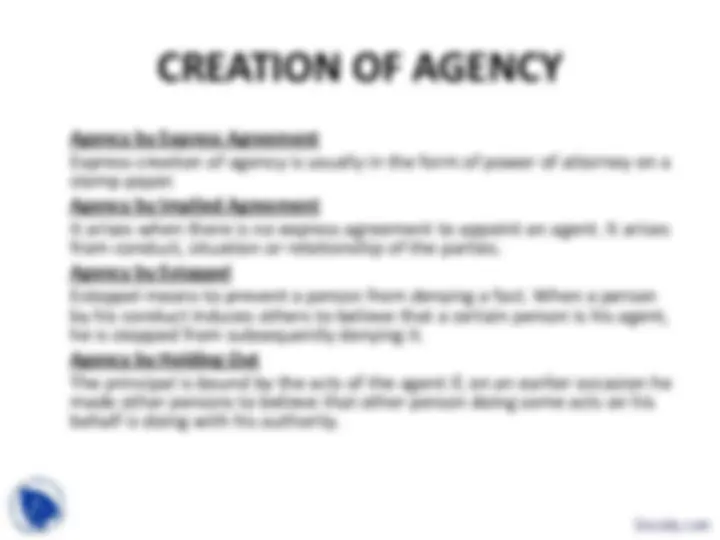
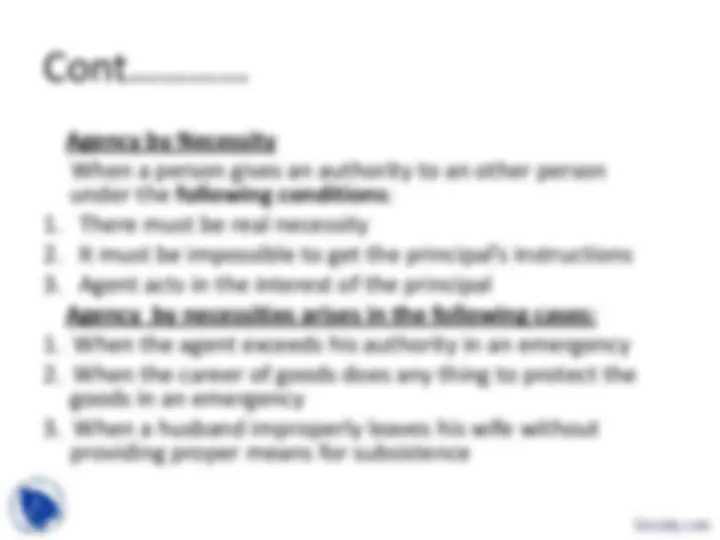
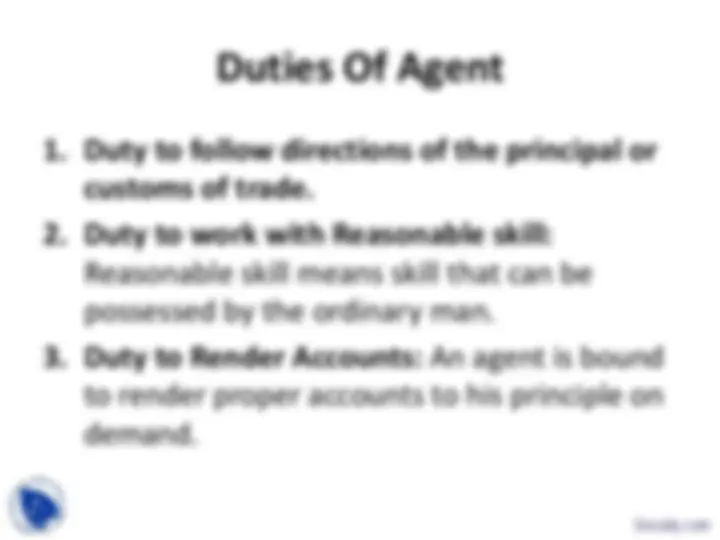
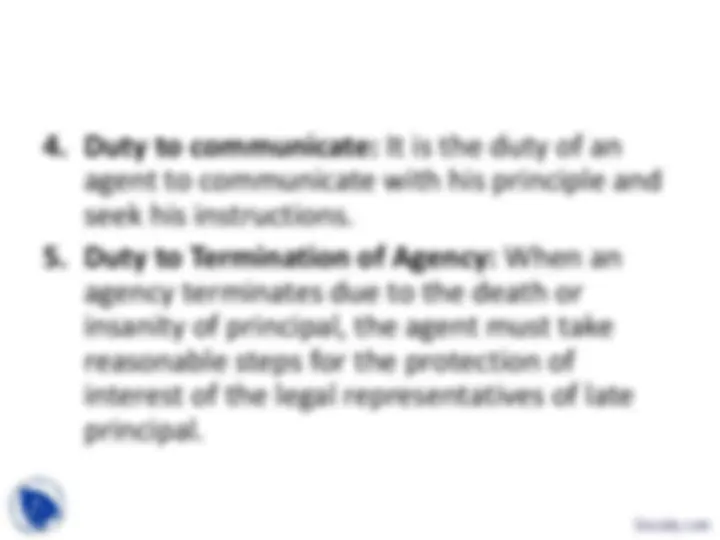
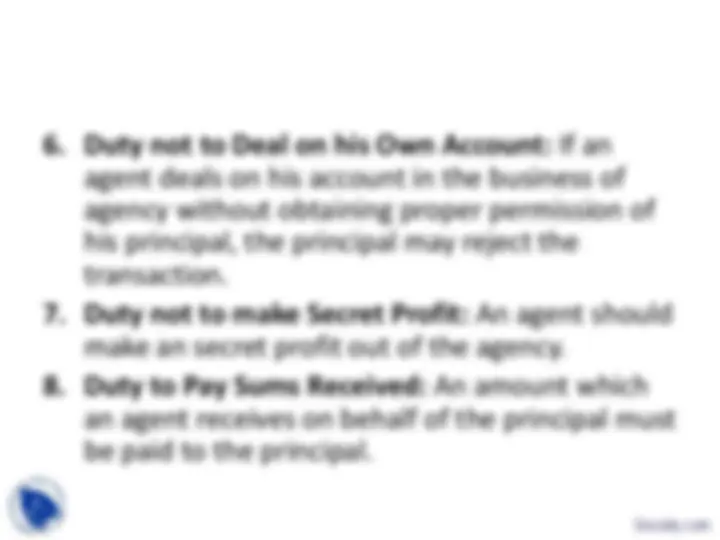
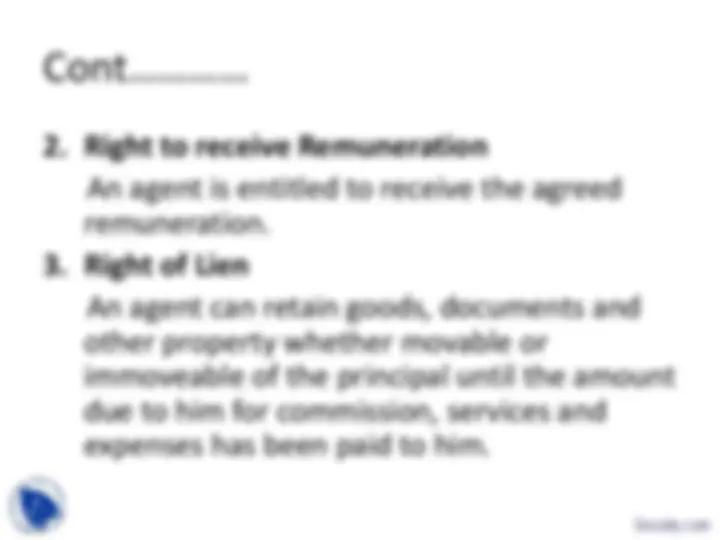
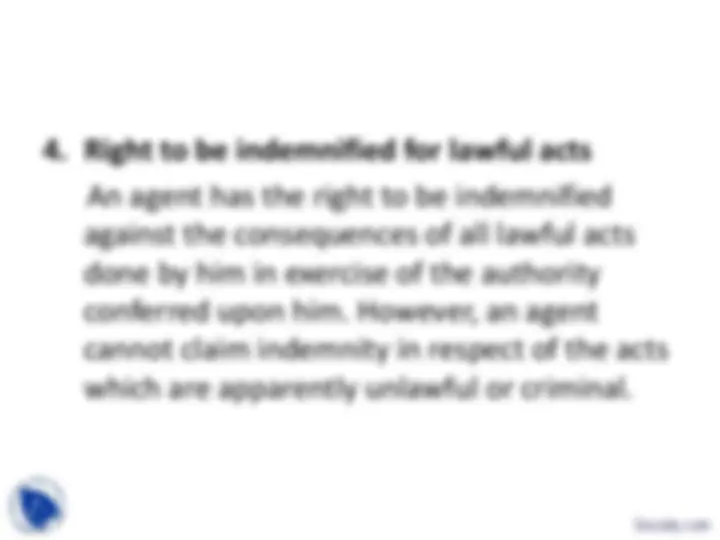
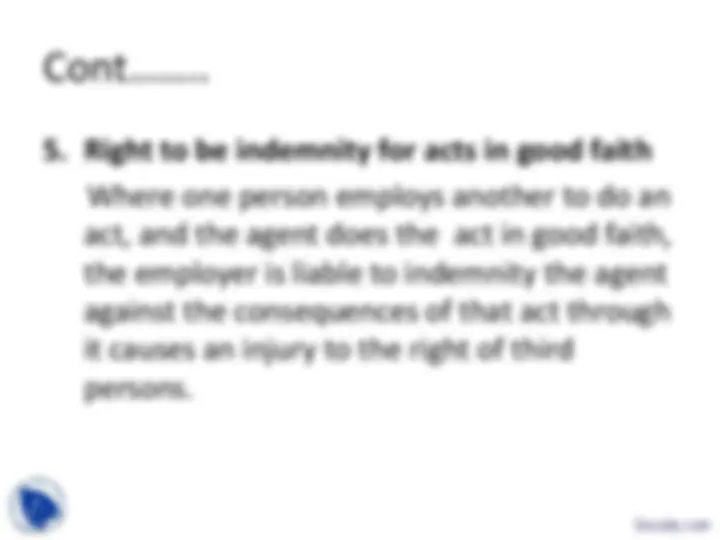
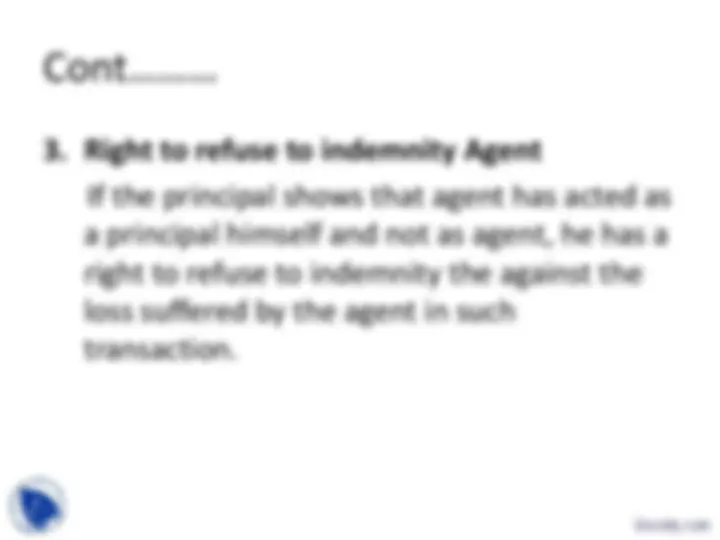
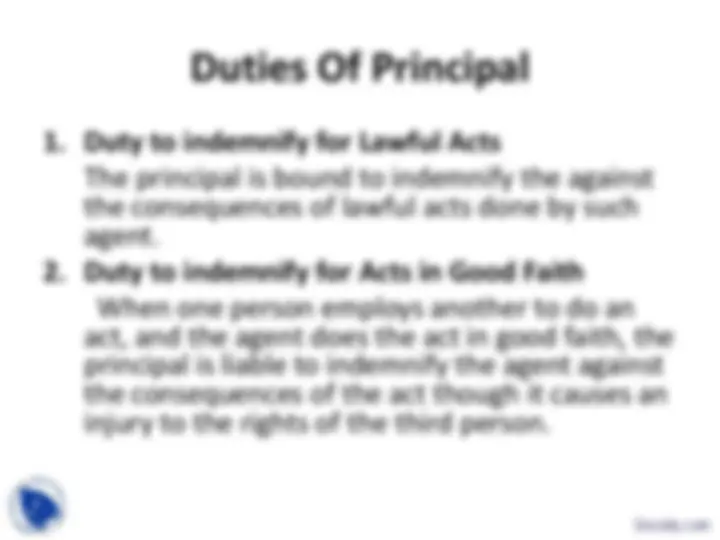
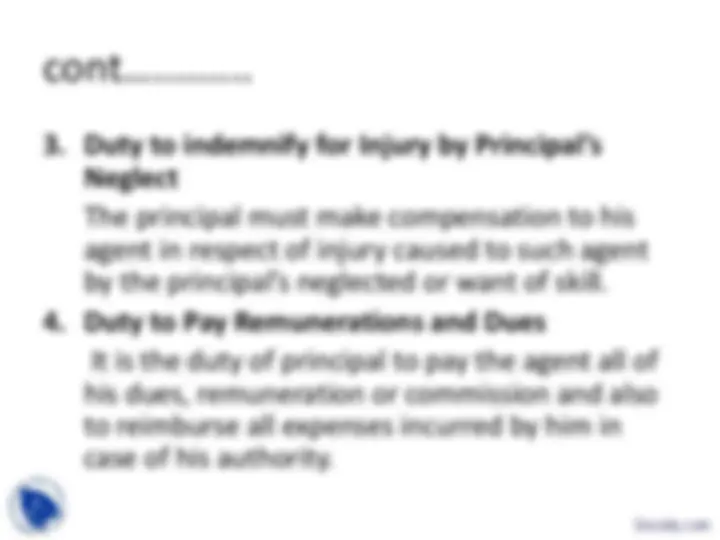
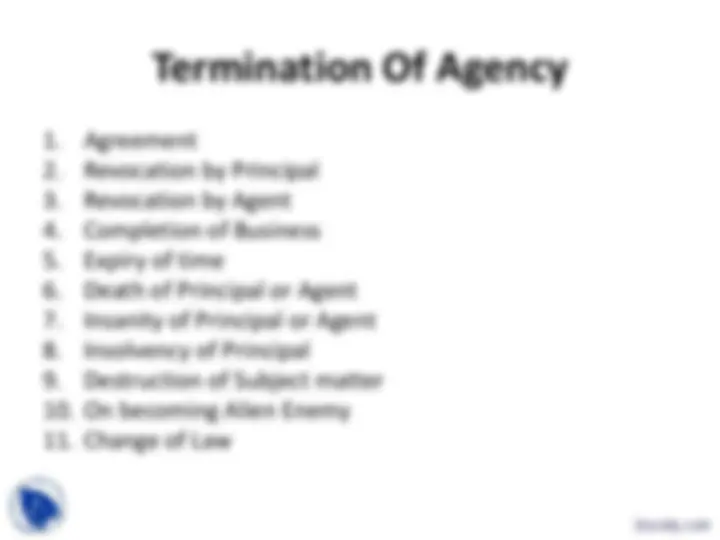



Study with the several resources on Docsity

Earn points by helping other students or get them with a premium plan


Prepare for your exams
Study with the several resources on Docsity

Earn points to download
Earn points by helping other students or get them with a premium plan
Community
Ask the community for help and clear up your study doubts
Discover the best universities in your country according to Docsity users
Free resources
Download our free guides on studying techniques, anxiety management strategies, and thesis advice from Docsity tutors
Prof. Jenny Pinto delivered this lecture for Technical Writing course at Laxmibai National Institute of Physical Education. It includes: Agent, Principal, Contract, General, Special, Universal, Mercantile, Factor, Commission, Broker
Typology: Slides
1 / 22

This page cannot be seen from the preview
Don't miss anything!















A person who acts on behalf of another is called an Agent. The person who authorizes another person to act on his behalf is called the Principal. The contract which creates the relationship of agent with the principal is called the Agency. Agency is created to perform any act which the principal can perform lawfully.
Agency by Express Agreement Express creation of agency is usually in the form of power of attorney on a stamp paper.
Agency by Implied Agreement It arises when there is no express agreement to appoint an agent. It arisesfrom conduct, situation or relationship of the parties.
Agency by Estoppel Estoppel means to prevent a person from denying a fact. When a person by his conduct induces others to believe that a certain person is his agent,he is stopped from subsequently denying it.
Agency by Holding Out The principal is bound by the acts of the agent if, on an earlier occasion hemade other persons to believe that other person doing some acts on his behalf is doing with his authority.
Agency by Necessity When a person gives an authority to an other person under the following conditions :
Under partnership Act, every partner is an agent of the firm. Under Companies Act, All directors are agents of the company.
1. Duty to follow directions of the principal or **customs of trade.
6. Duty not to Deal on his Own Account: If an agent deals on his account in the business of agency without obtaining proper permission of his principal, the principal may reject the transaction. 7. Duty not to make Secret Profit: An agent should make an secret profit out of the agency. 8. Duty to Pay Sums Received: An amount which an agent receives on behalf of the principal must be paid to the principal.
9. Duty not to delegate Authority: An agent must perform the work of agency himself. An agent not delegate his authority to another person. However the following are some exceptions of this rule. a. When the principal has permitted to delegate authority. b. When by ordinary custom of trade, a sub-agent can be appointed. c. When the nature of agency makes it necessary to appoint a sub-agent.
2. Right to receive Remuneration
An agent is entitled to receive the agreed remuneration.
3. Right of Lien
An agent can retain goods, documents and other property whether movable or immoveable of the principal until the amount due to him for commission, services and expenses has been paid to him.
4. Right to be indemnified for lawful acts
An agent has the right to be indemnified against the consequences of all lawful acts done by him in exercise of the authority conferred upon him. However, an agent cannot claim indemnity in respect of the acts which are apparently unlawful or criminal.
6. Right to Compensation for Injury
An agent has the right to be compensated for injuries sustained by him due to the principal’s neglect or want of skill.
7. Right of Stoppage of Goods
An agent has the right to stop the goods in transit to the principal like an unpaid seller.
1. Right to Recover Damages
If the principal suffers any loss, he has the right to recover from his agent.
2. Right to Obtain Secret Profit
If the agent without the knowledge and consent of principal, makes any secret profits out of agency, the principal has a right to recover them from the agent.
1. Duty to indemnify for Lawful Acts The principal is bound to indemnify the against the consequences of lawful acts done by such agent. 2. Duty to indemnify for Acts in Good Faith When one person employs another to do an act, and the agent does the act in good faith, the principal is liable to indemnify the agent against the consequences of the act though it causes an injury to the rights of the third person.
3. Duty to indemnify for Injury by Principal’s Neglect The principal must make compensation to his agent in respect of injury caused to such agent by the principal’s neglected or want of skill. 4. Duty to Pay Remunerations and Dues It is the duty of principal to pay the agent all of his dues, remuneration or commission and also to reimburse all expenses incurred by him in case of his authority.